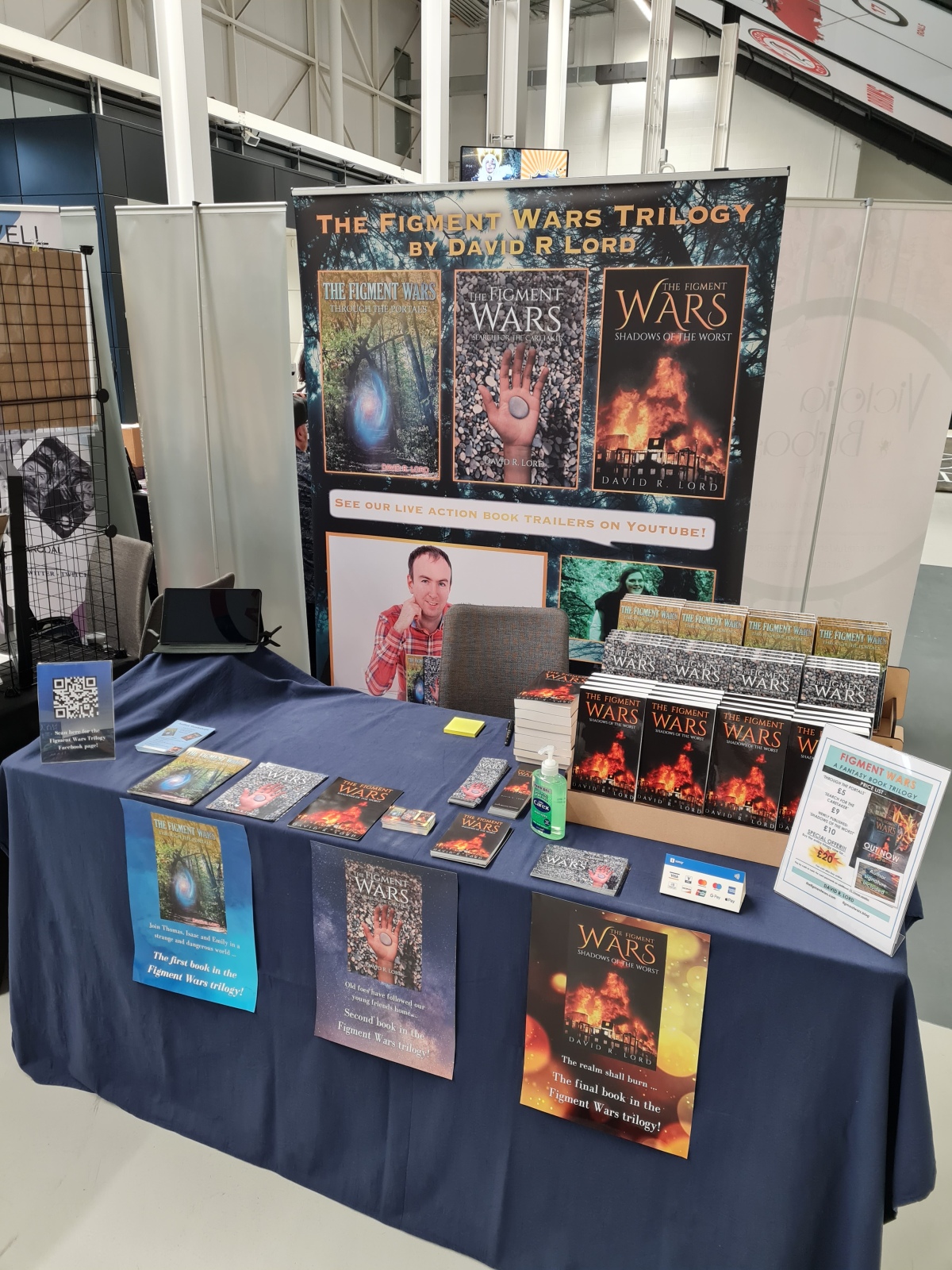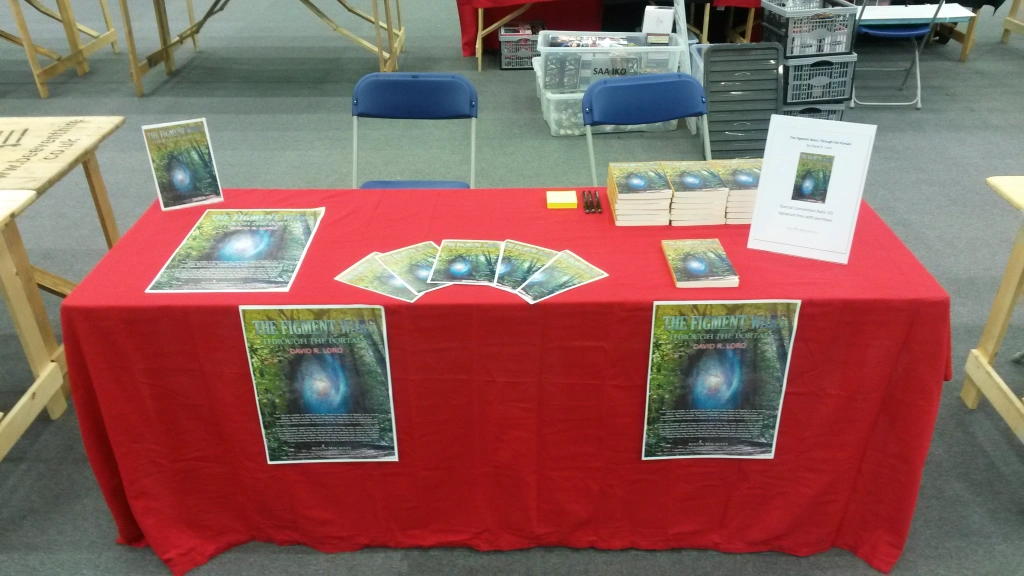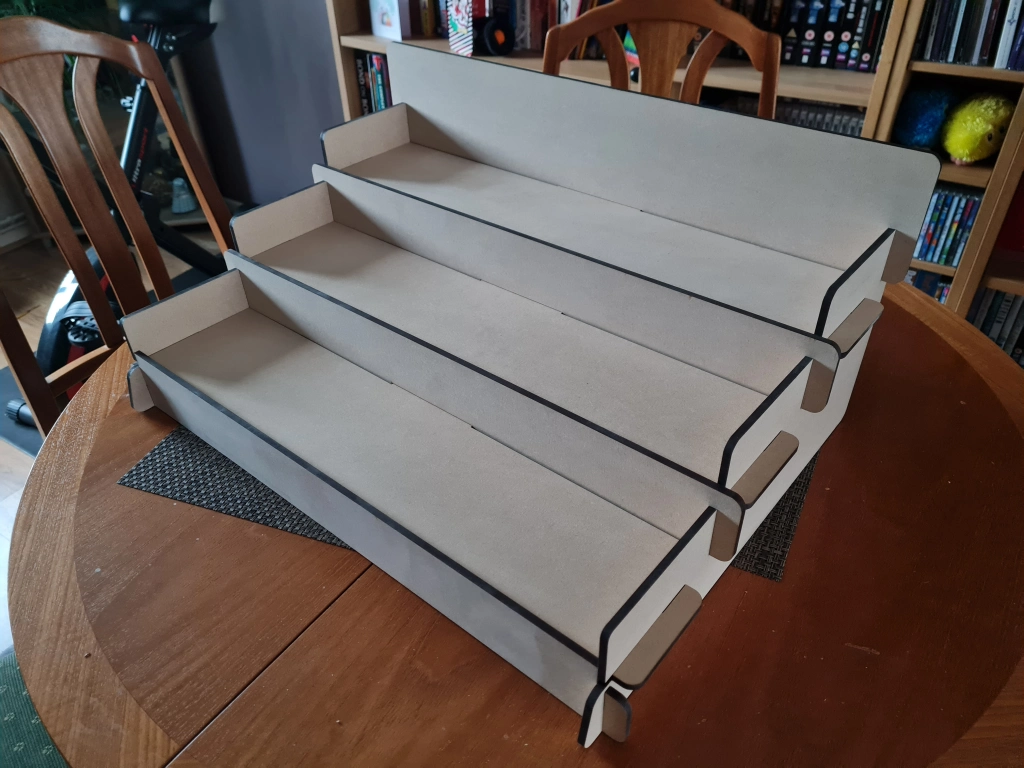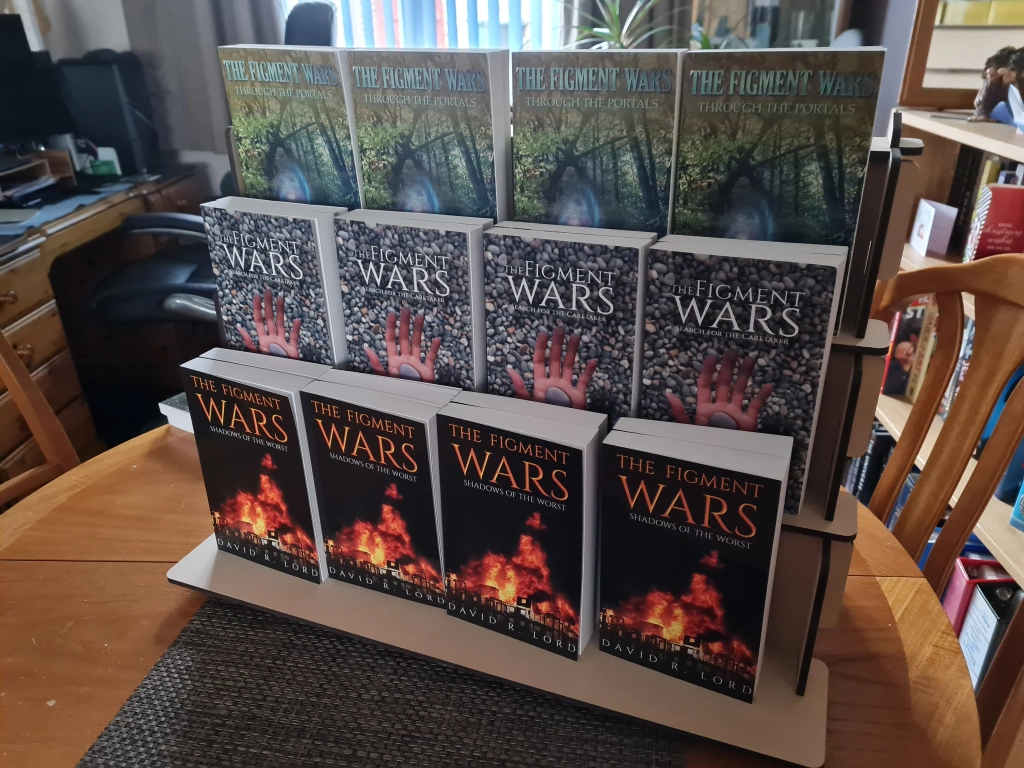There’s no denying it’s been a long time since I last wrote a blog. I plan to make a proper return to it, but this one is going to be relatively short.
It’s been a busy few months, coupled with more than one unfortunate bout of ill health on my part. Nothing serious, thankfully, just a string of bugs that managed to sap me of most of my energy. The most recent one being a cough lasting more than a month that is only just getting the message that it’s not welcome. I’m currently on medication (which is something I’m not particularly used to) and someone will be having a good look at the inside of my chest in just over a week via an x-ray. Again, nothing serious, just the length of the cough has made it necessary to take a closer look. However, touch wood, I am feeling more myself lately and am looking to get back not just to blogging but to book promotion.
Acting has also taken up a fair bit of my time and energy lately. I’m not complaining for a moment, I love every moment of it whether on stage with friends or on a set as an SA/extra. Even though it’s been a couple of months since we finished panto, I think it’s taken up until now for my energy levels to recover. The bouts of illness coupled with this has left me disinclined to keep up with blogging or pretty much anything to do with my books, but that is about to change.
I’m taking steps to improve my diet and overall fitness. Nothing drastic, just sensible little steps that will build over time. The vital thing has been the identification of certain bad habits of mine regarding snacking. This persistent cough has made it necessary to change my diet and has, in many ways, helped me summon up the willpower to change my bad habits. If not that, then the necessity has left me without the desire to indulge in those habits. Either way, I’m left feeling slightly better off and getting better each day.
Of course, there’s been a recent event in my life that has really helped to boost my overall spirits and rediscover the motivation to do more. If you’ve made it this far into the blog, you’re probably wanting to know more.
Yes, I’m getting married!
My partner and I took a week long trip to Malta a few weeks ago to celebrate his birthday. His parents were already out there and it was wonderful to share the trip with them. On his actual birthday we popped over to Gozo on the ferry. Upon returning to our room we discovered the hotel had left wine, a card and a muffin as a gift for him. While just resting in the room before getting ready to go down for dinner, he proposed. Got down on one knee and everything. I happened to be reading at the time, and while interrupting me during such a vital activity is normally hazardous to one’s health, this interruption was exceedingly welcome. We told his parents that night, and then my family shortly after arriving back in the UK.
Firstly, I’d like to say something of just how supremely happy I am right now. It’s hard to express, tied in as it is with so much else going on for me at the moment. Hence the main reason for writing this blog. I want to get it all down, to process it. We had talked about the idea of getting married some years ago, so we knew we were both open to it. His proposal came as something of a surprise, and it has taken these last few weeks for it to sink in. Our families and friends all know, and my engagement ring sits comfortably on my finger, as though I’ve always worn it (I have never actually worn a ring habitually in my life).
My partner and I have been together for twelve years. We moved in together in a rented house just over a year after we met, then three years later we bought our house. So much has happened in that time, both on the world stage and our little corner of it. We’ve both gone through a rather nasty bout of stress and anxiety, each of us supporting the other to come through the other side. He supported me wholeheartedly when I joined my local amateur theatre group, even though it does take me away from him for several evenings a week. He’s only ever jokingly complained about this, because deep down he knows what I was like before I returned to acting. Writing is all well and good, and no doubt I shall continue to write when the mood strikes, but acting is very much a communal activity. Being with my friends in that rehearsal room fulfils me creatively, while being with my fiancé fills up pretty much every other aspect of my being.
He has been my best friend these past twelve years. He knows me and he sees me for who I am. I also feel I know him better than I’ve ever known anyone. We enjoy our time together but never seek to monopolise each other. We strive for balance, which I believe is healthy in a relationship. We share some interests while also maintaining our own individual pursuits. Neither of us ever insists that the other do something.
The smile on his face when I said “Yes” told me all this and so much more. Growing up, I had often imagined what it would be like to have a boyfriend. Well, I had to, seeing as I didn’t know anyone else who was gay at the time. I don’t believe I ever dreamed that one day I would find someone who loved me enough to want to commit to spending the rest of his life with me. Equal marriage for gay couples was something that was barely being talked about when I was a teenager, or if it was, nobody was talking about it to me.
Even when equal marriage came to the UK, I can’t say for certain that it would be something I would ever get to do. I celebrated, naturally, but it felt like something that other people would get to benefit from. Now, here I am, making wedding plans with a man I love and adore. It has so invigorated my spirit that I find myself happy to get back to other things I have long since neglected, this blog being but one of them. My fiancé has given me perhaps the greatest gift anyone ever can give another person. Without even realising it, he’s made me believe in myself again.










